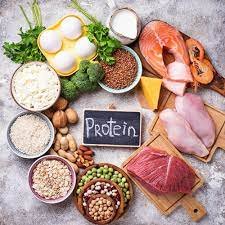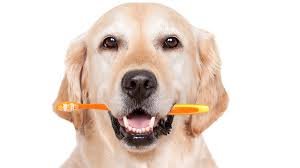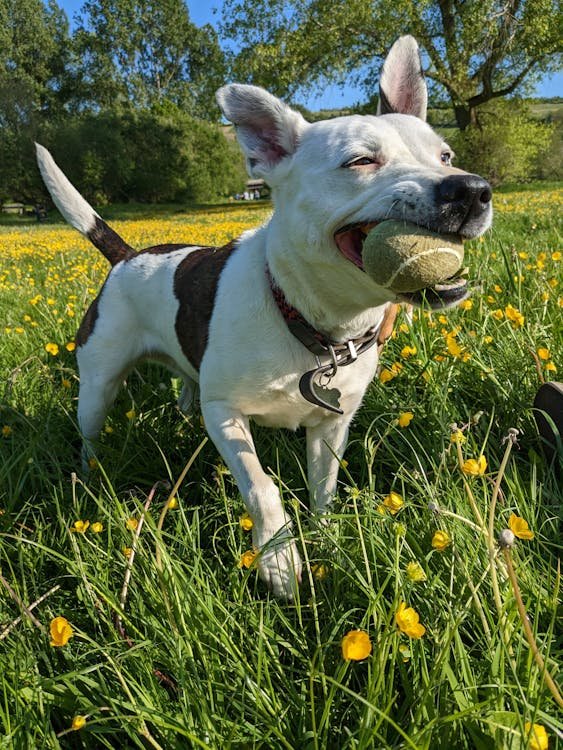Table of Contents
ToggleEnsure a Smooth Transition and Keep Your Older Dog Healthy with Advice from America’s Favorite Veterinarian

How to Switch to a Senior Dog Food Without Making Your Dog Sick.
Dr. Gary Richter, a renowned veterinarian, shares a tip to help your senior dog transition to new food without getting sick.
Not all dogs show signs of aging; some stay playful throughout their lives.
Small dogs tend to age slower than large ones, with small dogs reaching 20 years of age and large dogs maturing much earlier.
So, how do you know when your dog has entered its golden years?
The American Veterinary Medical Association states that small dogs are generally considered seniors at 7 years old, while larger breeds are seniors at 5 to 6 years old.
Every dog is unique, but a healthy diet, exercise, and dental care can help extend your dog’s middle age phase.
Do older dogs need more protein or less?
Contrary to popular belief, older dogs need more protein to maintain muscle mass as they age, similar to humans.
A meat-based protein diet won’t strain a healthy older dog’s kidneys, but consult your vet if your dog has kidney disease.

Senior dog foods should contain at least 27% protein.
Should all older dogs eat senior dog food?
In most cases, no. A healthy, balanced diet is sufficient for older dogs unless there are specific health concerns.
Obesity is a major issue in seniors, leading to health problems like arthritis and hip dysplasia.
Older dogs need 20% fewer total calories than middle-aged adult dogs due to decreased physical activity and slowed metabolism.
How much food should I feed my senior dog?

Every dog is different, so start with the package’s feeding instructions or use a dog food calculator.
A study found that dogs at ideal body condition live 1.8 years longer than overweight dogs.
To ensure a smooth transition to senior dog food, mix the new food with the old over 7-10 days.
Select senior dog food formulated for older dogs’ nutritional needs, including joint health and cognitive function.
Monitor your senior dog’s weight, body condition, and overall health regularly, and consult your vet with any concerns or questions.
It’s crucial to watch for signs of aging in your dog. These signs include gray hair, reduced activity, and changes in behavior. Recognizing these signs early can help you take better care of your senior dog.
Senior dogs often experience joint pain. This can affect their mobility and overall quality of life. Providing joint supplements can help. Look for dog foods with added glucosamine and chondroitin.
Regular vet check-ups are essential for senior dogs. These visits can catch potential health issues early. Your vet can also provide guidance on diet and exercise.

Dental care is also important. Older dogs are prone to dental problems. Brush your dog’s teeth regularly and consider dental chews or professional cleanings.
Mental stimulation is key for older dogs. Keep their minds active with puzzle toys and interactive games. This can help prevent cognitive decline.
Hydration is vital. Make sure your senior dog always has access to fresh water. Dehydration can lead to serious health issues.
Adjust exercise routines for senior dogs. Gentle walks and low-impact activities are best. Avoid strenuous exercises that can strain their joints.
Senior dogs may have specific dietary needs. Look for foods with high-quality ingredients. Avoid fillers and artificial additives.

Omega-3 fatty acids can benefit senior dogs. They support joint health and cognitive function. Look for foods with fish oil or flaxseed.
Monitor your dog’s weight closely. Obesity can lead to numerous health problems. Adjust their diet and exercise as needed to maintain a healthy weight.
Be mindful of your dog’s comfort. Provide a soft, supportive bed. Consider ramps or steps to help them access furniture or vehicles.
Keep your senior dog’s environment safe. Remove hazards and provide easy access to food, water, and resting areas.
Monitor your dog’s behavior. Changes can indicate health issues. Report any concerns to your vet promptly.
Provide regular grooming for your senior dog. This includes brushing their coat and trimming their nails. Grooming helps keep their skin and coat healthy.
Consider your dog’s specific breed. Some breeds are prone to certain health issues. Research and prepare for potential problems.
Stay informed about senior dog care. Read articles, watch videos, and join online communities. Knowledge is key to providing the best care for your senior dog.
Enjoy your time with your senior dog. They still have a lot of love and joy to offer. Cherish these moments and make their golden years special.
Additional Information:
To ensure a smooth transition to senior dog food, consider gradually mixing the new food with the old one over the course of 7-10 days. This gradual transition can help prevent gastrointestinal upset or digestive issues in your senior dog.
Furthermore, when selecting a senior dog food, look for options that are specifically formulated to meet the nutritional needs of older dogs. These formulations often contain ingredients that support joint health, cognitive function, and overall vitality in senior dogs.
Lastly, monitor your senior dog’s weight, body condition, and overall health regularly. Adjust the feeding amount as needed to maintain a healthy weight and body condition score, and consult with your veterinarian if you have any concerns or questions about your senior dog’s diet and nutrition.
Top 10 Best Dog foods for Senior dog food reviews:















